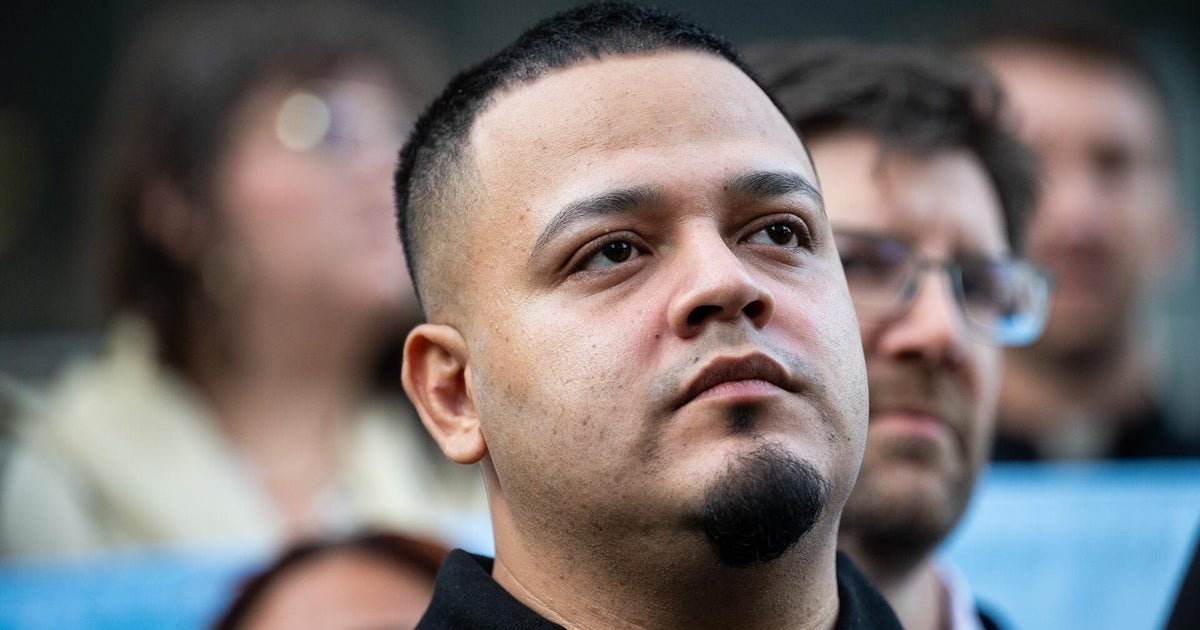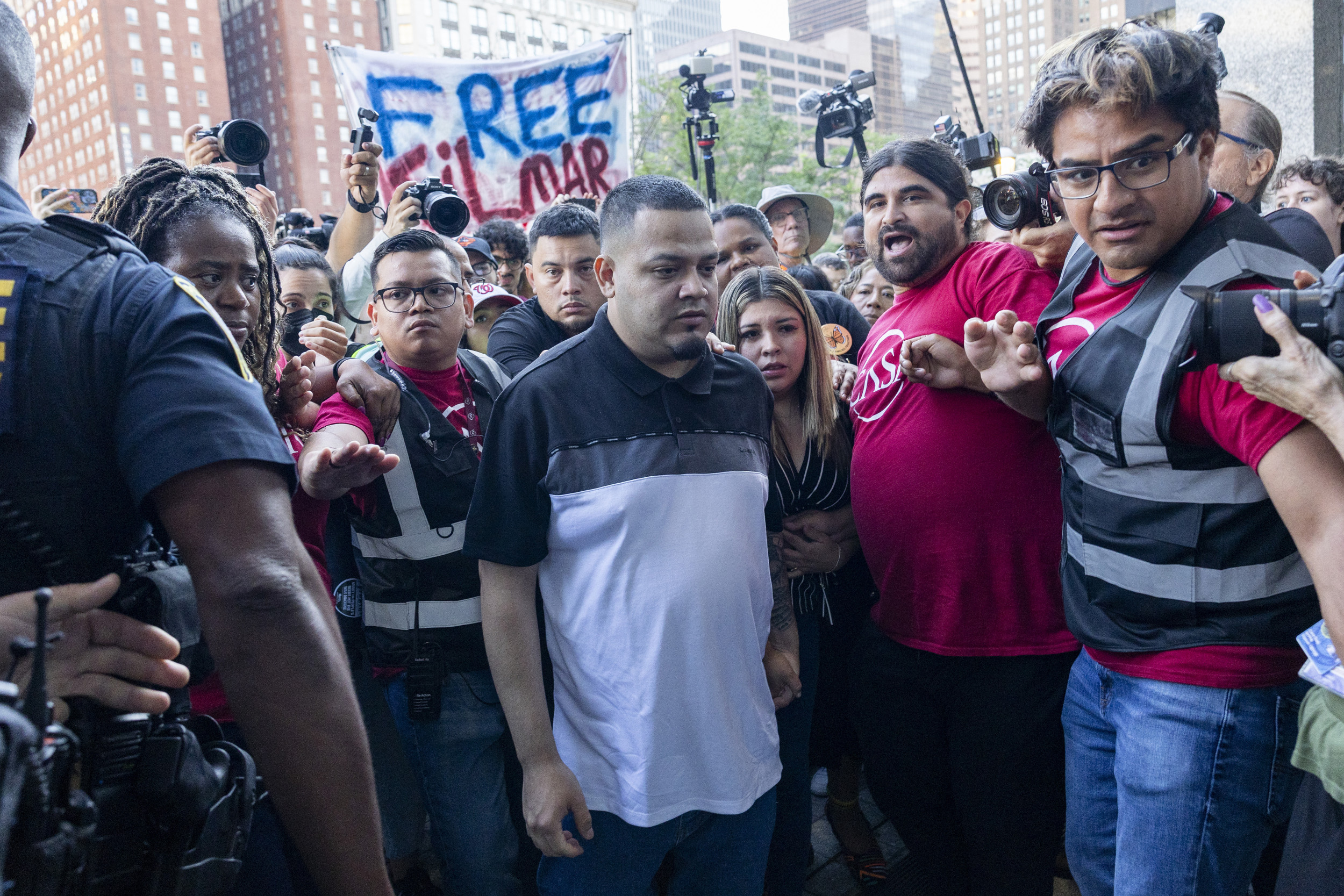Hearing Set Over Alleged Vindictive Prosecution in Abrego Garcia Immigration Case
#immigration #justice #human_rights #prosecution #legal_battle
Background of Abrego Garcia's Case
Kilmar Abrego Garcia, a Salvadoran immigrant living legally in the U.S., faces human smuggling charges that his defense claims are retaliatory. In a recent ruling, U.S. District Court Judge Waverly Crenshaw granted a hearing to examine whether the Department of Justice’s prosecution is illegally vindictive. Garcia had previously been deported under controversial circumstances despite legal protections due to threats he faced in El Salvador.
Legal and Human Rights Concerns
The case highlights complex issues about immigration enforcement and due process. Garcia’s supporters argue the charges are part of a pattern of punitive actions against him, possibly as retaliation for his previous legal victories. This raises questions about the fairness of the justice system when prosecuting vulnerable immigrants, especially those with established protections against deportation.
Implications and Next Steps
The upcoming hearing could set important precedents for how smuggling charges are applied and challenged in court. It underscores the ongoing tension between immigration policy enforcement and protecting individual rights within the U.S. legal framework.
About the People Mentioned
Kilmar Abrego Garcia
Kilmar Abrego Garcia was born in July 1995 in the Los Nogales neighborhood of San Salvador, El Salvador. His family faced serious threats from the Barrio 18 criminal gang, which extorted his mother’s small pupusa business and threatened to force his eldest brother, Cesar, into gang membership or kill him. To protect Cesar, the family sent him to the United States. Later, the gang targeted Kilmar as well, leading his family to send him to the US when he was about 16 years old. He crossed the Mexico–US border illegally near McAllen, Texas, around 2011 or 2012 and subsequently traveled to Maryland to live with his brother Cesar, who had become a US citizen. In Maryland, Kilmar Abrego Garcia established a family life after marrying Jennifer Vasquez Sura, a US citizen, in 2016. The couple had one child together, and they raised this child alongside Vasquez Sura’s two children from a previous relationship. All three children have special needs; notably, the son born to Kilmar and Jennifer has autism and a hearing impairment and is non-verbal. Throughout his time in the United States, Abrego Garcia had no criminal charges or convictions, including any gang-related allegations, in either the US or El Salvador. Despite his family ties and lack of criminal record, Kilmar Abrego Garcia was eventually deported to El Salvador. His case highlights the challenges faced by many Central American migrants fleeing gang violence and the complexities surrounding immigration enforcement in the US. His life story is notable for the intersection of family protection, migration under duress, and the impact of immigration policies on individuals with strong family and community connections in the United States.
About the Organizations Mentioned
Department of Justice
The **United States Department of Justice (DOJ)** is a federal executive department responsible for enforcing federal laws, ensuring public safety, defending the interests of the United States, and upholding civil rights. Established in 1870 to consolidate federal legal affairs under the Attorney General, the DOJ has grown into a vast organization with over 115,000 employees and a budget exceeding $22 billion[1][4][5]. It operates through more than 40 component organizations, including prominent law enforcement agencies such as the Federal Bureau of Investigation (FBI), Drug Enforcement Administration (DEA), Bureau of Alcohol, Tobacco, Firearms and Explosives (ATF), and the U.S. Marshals Service[1][4][5]. The DOJ’s core mission is to uphold the rule of law, keep the nation safe, protect civil rights, and ensure a fair and impartial administration of justice across federal, state, local, tribal, and international levels[2][5]. It investigates and prosecutes federal crimes, including terrorism, drug trafficking, organized crime, financial fraud, and cybercrime. The FBI, as the DOJ’s principal investigative arm, leads in areas such as counterterrorism, counterintelligence, and cybercrime[6]. Additionally, the DOJ manages federal prisons and provides leadership and resources to state and local law enforcement agencies. Historically, the DOJ’s origins trace back to the Judiciary Act of 1789, which created the Attorney General's office. Its establishment as a separate department in 1870 allowed for greater coordination of federal law enforcement and legal representation of the government[2][4]. Over time, the DOJ has played a critical role in landmark civil rights enforcement, combating organized crime, and adapting to modern challenges such as cyber threats and international criminal cooperation[1][5]. Today, headquartered in Washington, D.C., with field offices nationwide and abroad, the DOJ continues to influence national security and justice policy, balancing traditional law enforcement with evolving technological and societal demands.
U.S. District Court
The **U.S. District Courts** are the principal trial courts in the federal judiciary of the United States, responsible for hearing both civil and criminal cases under federal law. There are 94 active district courts distributed geographically across the country, with each state having one or more districts depending on population and caseload. These courts handle trials involving federal statutes, constitutional questions, disputes between residents of different states, and federal crimes[1][3][6][7]. **History and Structure:** Established by the Judiciary Act of 1789, the U.S. District Courts were initially organized into thirteen judicial districts coinciding with the states existing at the time. Initially focused on admiralty, maritime, and minor civil cases, their jurisdiction expanded throughout the 19th century to include a broader range of civil and criminal matters. Each district court is presided over by at least one United States District Judge, appointed by the President and confirmed by the Senate to serve lifetime terms, ensuring judicial independence. Federal magistrate judges assist with pretrial matters and certain hearings, appointed for renewable terms to help manage heavy caseloads[1][4][6]. **Key Functions and Operation:** District courts serve as the fact-finder in trials, conducting hearings, managing evidence, and issuing rulings that apply federal law. They have original jurisdiction over most federal cases, including civil rights, antitrust, patent, and federal criminal prosecutions. Decisions from district courts may be appealed to one of the twelve regional U.S. Circuit Courts of Appeals or, in some specialized cases, to the Federal Circuit or the U.S. Supreme Court[5][6][7]. **Notable Aspects and Achievements:** The U.S. District Courts form the backbone of the federal judiciary, often handling complex, high-impact cases that shape business, technology, and public policy. Their lifetime-appointed judges provide stability and consistency in interpreting evolving laws, including those related to emerging technologies and intellectual property. The system’s design balances local accessibility












